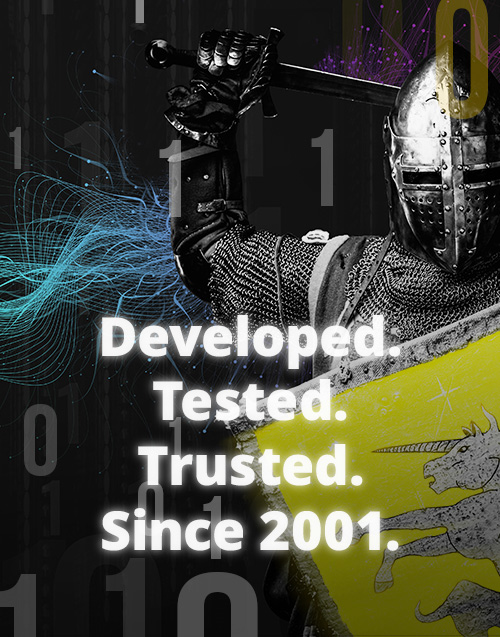IT skills shortage: already a huge problem today
The shortage of IT specialists in particular is threatening the competitiveness and innovative capacity of the German economy. According to a recent study by Bitkom, there will be a shortage of around 137,000 IT specialists by the end of 2023. Why is this bad? This leads to massive delays and obstacles in normal business operations with regard to future projects or plans, but also to increased costs. For example, restructuring, IT operational issues and IT security need to be tackled as part of the digital transformation. Quite a few sectors of the economy are simply dependent on modern IT solutions. The increasing shortage of skilled labour is hampering growth opportunities here, both externally and within the company.
The skills shortage is only just beginning
We won't beat around the bush: the outlook is bleak. On the one hand, the demand for IT specialists is growing in almost all sectors due to advancing digitalisation. On the other hand, the number of graduates in IT-relevant training areas or degree programmes is not increasing to the same extent. At the same time, demographic trends are contributing to the fact that more and more skilled workers are retiring. A study by McKinsey predicts that there could be a shortage of around 700,000 IT specialists in Germany by 2030. Salaries in the IT sector are also rising continuously. Those who can pay these salaries attract skilled workers. But this is not the case for many companies - a vicious circle. The prospects are not gloomy. They are deep black.
Solution approaches
Not only comprehensive, but above all sustainable measures are required to counteract the shortage of skilled labour. The promotion of training and qualifications plays a central role in this. This includes reforming established degree programmes and training courses as well as strengthening dual training and possible further training opportunities. There is also an urgent need to reduce the drop-out rate and, in particular, to open the door to more career changers. Older employees should be given the opportunity to work longer. And another decisive lever is the greater inclusion of women. They are currently severely underrepresented in IT, which leaves enormous potential untapped. Targeted programmes and support measures can change this.
Another approach is the recruitment of international specialists. However, this requires bureaucratic hurdles to be removed and more attractive working conditions to be created. German companies should proactively position themselves as interesting addresses for IT experts. It will hardly be possible to avoid the emergence of international IT departments in the future and the corresponding multilingual communication between them. However, there must also be a recognisable willingness not only to take on these specialists, but also to support and integrate them.
Of course, AI can also alleviate the problem. However, it will be more about relieving the burden than about full automation and autonomisation. For example, standard tasks could be relieved or individual work steps could be made easier or taken over. In the short term, however, this will not bring about any fundamental change.
Managed services are perhaps the most effective solution:
... Outsourcing routine tasks: IT maintenance, system monitoring, security updates, etc.
... IT staff can concentrate on specific projects and tasks.
... Gain access to specialised knowledge, expertise and experience.
... Benefit from scalability and flexible IT solutions that adapt to your needs.
... Save costs by investing less in recruiting, training and retaining IT professionals.
... Gain access to new technologies, which also has a positive impact on innovation and competitiveness.
... Receive continuous support, e.g. through 24/7 support or round-the-clock monitoring. Most companies cannot afford this from their own resources and it creates important freedom.
Conclusion
The shortage of skilled labour in IT is serious. Above all because IT technologies are hugely important, are becoming increasingly important and are highly dependent on expertise and know-how. It is nothing less than one of the biggest challenges facing the German economy, regardless of company size or sector. We have described the outlook as bleak. However, companies that take timely and proactive countermeasures can see a light at the end of the tunnel. Of course, every company has different resources. But burying your head in the sand is not an option. Especially not when there are surprisingly diverse solutions.
Our recommendation:
1,400 ... 1/3 ... 90 ... 24/7 ... Don't worry, these aren't the next horror figures on the IT skills shortage. They are just some of the figures that show what a managed services player DTS is. What's more, it shows how much we can help you with this problem.
1,400 customers already see it this way and benefit from us as a central point of contact, from considerable relief on the IT front, from more concentration on the core business, from DTS expertise and experience, from savings and predictable, customised services and costs. Around 1/3 of our total turnover is generated from managed services. 90 IT specialists alone are available to you in day and night shifts and on-call duty. And all DTS Managed Services are designed to be available 24/7.
No, there's no catch, no small print. With DTS ‘Everything as a Service’, we help you decisively with the IT skills shortage!
















